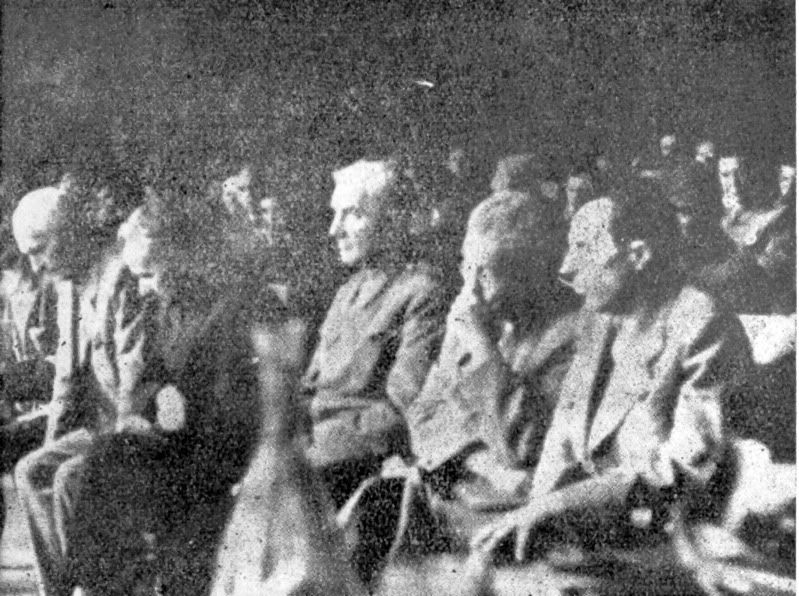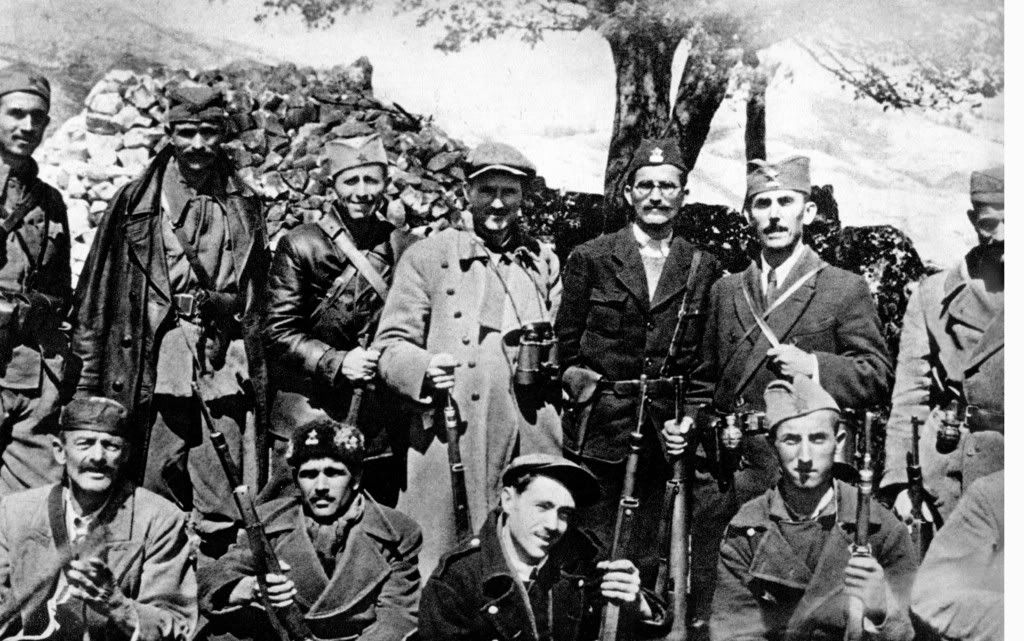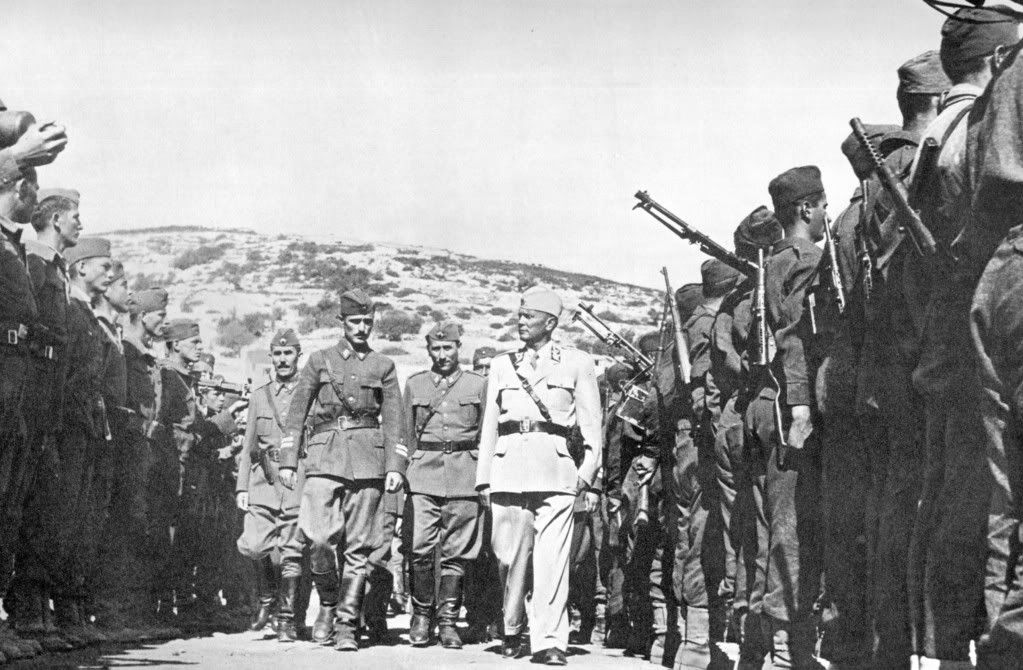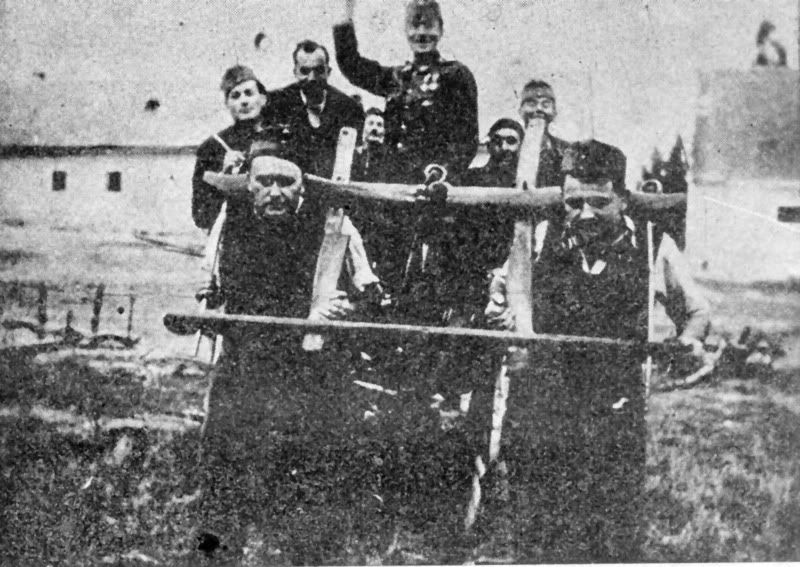You will pardon me, honorable ladies and gentlemen, for my protracted silence – simply, I was preoccupied with my professional obligations. However, here I am and here are my answers to your previous posts.
Librarian: okay,that’s my opinion,and that is yours.
Compared to other animals, the major crucial advantage of Homo sapiens sapiens, my dear Mr. Imi, has been the continued development of his intellectual flexibility and ability to learn from experience. The very peak of this ascent of the human animal was a product known as Science, and the real beneficial power of Science always was and still is within her capability for attestation and the resulting capacity to change otherwise erroneous human apprehensions. Our modern society and technology could not have been built on views, opinions, or faith. Nor can modern society have any hope of the solving the problems we face by reliance based upon sheer belief. The real power of scientific knowledge lies in its capability to present the power of evidence and the resulting ability to change, to update mental power of human beings.
People who are searching for different excuses to believe completely silly things frequently make a simple mistake – they are completely relying on their faith. But when a believer makes a positive assertion, and then declines to provide a basis for it, an rationally based refutation is always deemed invalid because it is impossible to prove a denial. The rules of logic and science are always indicating that there must be some kind of presented basis (either in substance or in thought) for an assertion or else it must be denied.
An assertion, without the evidence, is not acceptable as true. That is the default position in every science, the position that defines what critical, rational thought really is. Rational and critical thought means not believing things you are told unless there is evidence to back it up. And without critical thought, logic and science - the only kind of productive thought humanity has ever come up with - are to be abandoned. To reject critical, rationally based thought is to turn one’s back on thinking and embrace the Dark Ages.
Final result of your attitude is perfect example of an exercise in non-communication, which forces one either to take your “higher vision” of pure faith, or to remain completely silent. Faith has a certain validity, but validity of a very limited and relative kind, like a Rorschach test which conjures up different associations in each spectator. Will all due respect, my dear Mr. Imi, your reluctance to communicate concretely casts serious doubts on your factual insights. No one here is under any compulsion to communicate, but it is irrational to assume that he is more profound if he cannot get through with his bare feelings.
But we may take solace in the fact that we here do have personalities who are eloquent, individualistic, and above all sympathetic to the claims of science, and who without any doubt will outlast this contemporary, sadly amplified cult of unthinking. Please, don’t understand me wrongly: I always will be completely compassionately inclined toward you, because I do understand your deportment. Therefore allow me just one, indeed last demonstration of the scientific method in History which is connected with our case.
My “evidence” is died a few years before,he was tell me,the soldiers are hate the partisans they make traps,make brutal interrogations for the soldiers and Egorka was right,because the partisans isn’t like too much capturing pows,because the pows only setback the partisans.
Firstly, I am a little bit surprised that your source has not mentioned that the factual reason for enormous augmentation of the partisan forces, as well as for the enormous extension of the uprisal in Vojvodina (avagy Vajdaság, vagy Délvidék – nekem igazán mindegy, tisztelt Uram, történelmileg teljessen elfogadható kifejezésekről van szó) was exactly that coursed massacre, committed in northern Serbia in January of 1942, in which more than 6000 citizens in the towns and villages of Novi Sad, Pašićevo, Petrovac, Srbobran, Gajdobra, Tovariševo and Stari Bečej were brutally killed.
Everything started when a completely ill-qualified commander of the Hungarian forces, namely commanding officer of the 15th Infantry Brigade, lieutenant-colonel Bátori Géza – as a matter of fact an police officer! - issued a foolish order for a direct frontal attack against entrenched partisan forces (Prvi šajkaški NOP odred)- with 80 fighters - equipped only with rifles and pistols, and without MG’s or artillery. This small partisan company, positioned at location Pustajićev Salaš (Pustajic’s Homestead) near the village of Žabalj, not only was able to inflict serious losses (42 killed soldiers, including 2 officers) but even to escape, with 8 killed and 5 wounded partisans left behind.
So what was a result, of that idiotic action, my dear Mr. Imi? An unadorned massacre. Hungarian forces simply rounded up hundreds of families and literally mowed them down with bayonets, bullets, gunstocks, axes, hammers, knifes and hand grenades. The bodies were dumped into the icy waters of Danube, which had to be broken up by hand grenades. More than 1300 completely innocent residents of Novi Sad were brutally murdered by Hungarian forces in an unprecedented orgy of drunken violence, which did not spare even Germans, Hungarians or Muslims: 813 Jews, 380 Serbs, 18 Hungarians, 15 Russians, 13 Slovaks, 8 Croats, 3 Germans, 2 Ruthenians, 2 Slovenians, and 1 Muslim, to be exact. Amongst them, there were 492 males, 418 women, 168 children, and 177 elderly. In addition, seven Serbian Orthodox priests were among those killed, along with 1 Jewish Rabbi, 126 salesmen and shopkeepers, 100 tradesmen, and 81 pupils.
Do you wish to see those fantastic combat achievements of the chivalrous Hungarian troopers of the 15th Infantry regiment, 16th Borderguard battalion or the Royal Hungarian Gendarmerie, my dear Mr. Imi? Please, look:
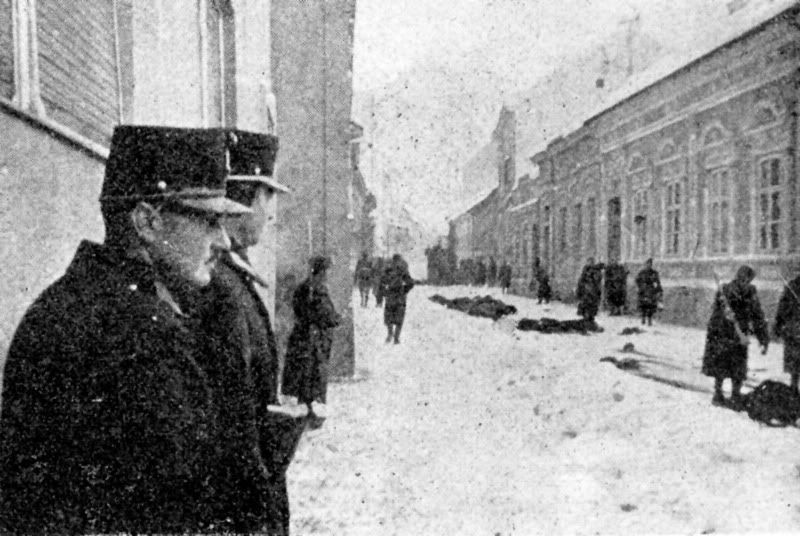
Hungarian Gendarmes are observing dead civilian bodies in the middle of the Mileticeva street – Novi Sad, (Újvidék, Neusatz) January 23rd,1942

Hungarian soldiers and Gendarmes are looting the pockets of dead civilians before the transportation - Mileticeva Street, Novi Sad, (Újvidék, Neusatz) January 23rd,1942
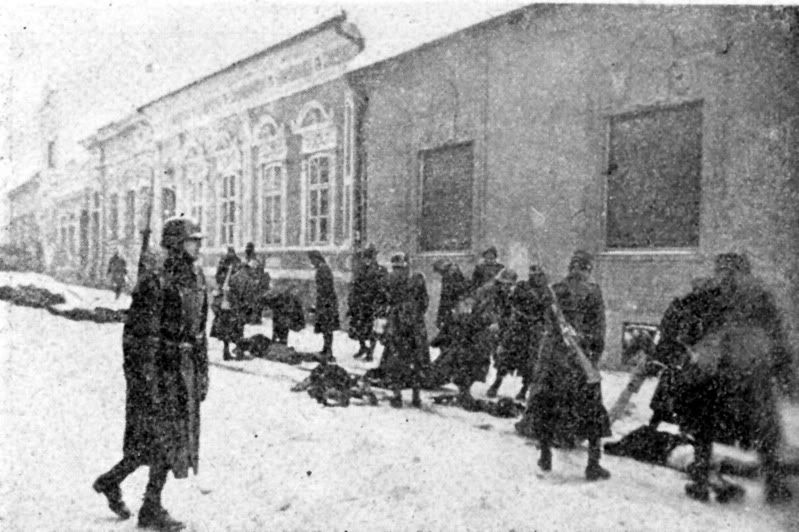
Hungarian soldiers are pulling away dead civilian corpses - Mileticeva Street, Novi Sad, (Újvidék, Neusatz) January 23rd,1942
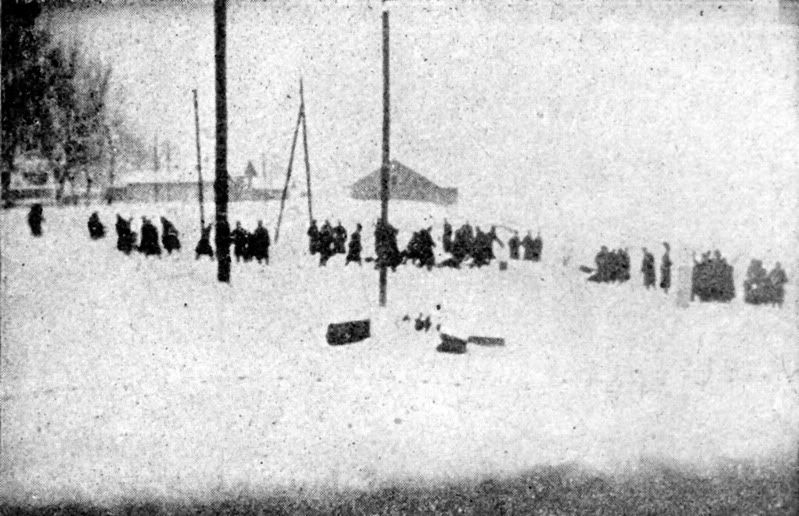
Killing of innocent civilians and their hurling into the frozen Danube - The Danube Strand, Novi Sad, (Újvidék, Neusatz) January 23rd,1942
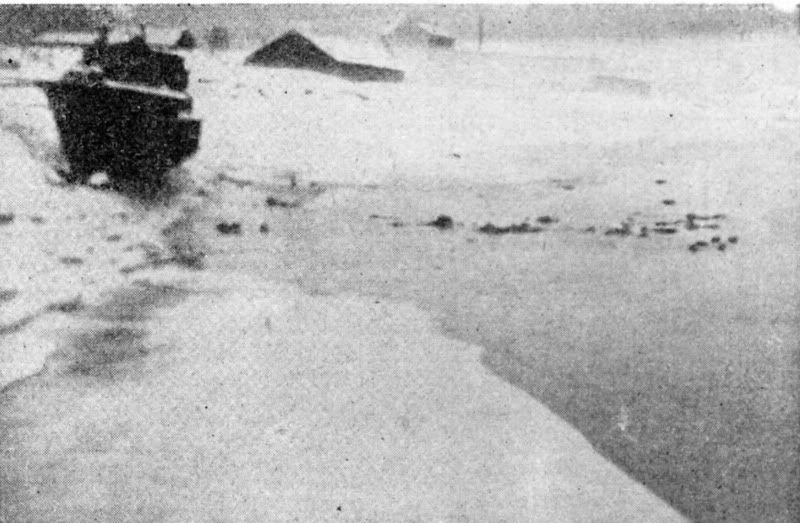
Civilian corpses which remained stationary after the hurling, - The Danube Strand, Novi Sad, (Újvidék, Neusatz) January 23rd,1942
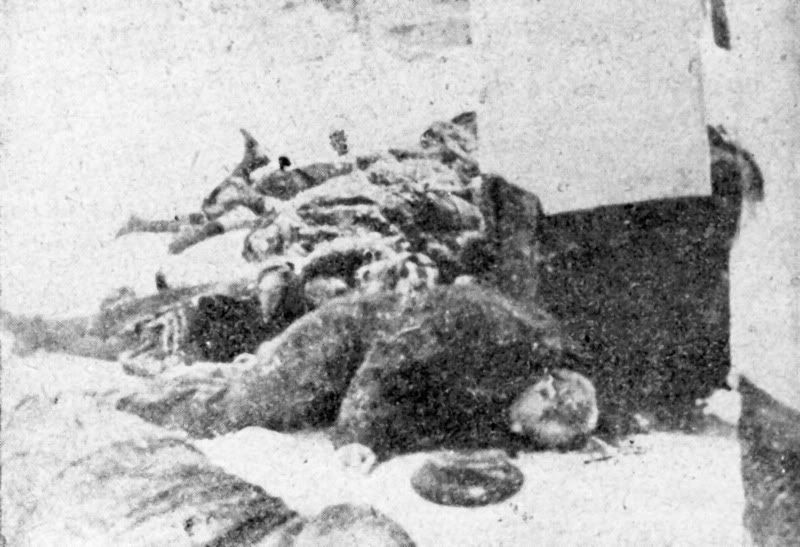
Cadavers of the innocent professional Serbian grave-digger Jovan Gonđa, his wife Ljubica, his 9 years old daughter Mara and her 13 year old friend in front of his home – Uspensko Groblje (Ascent Cemetery) Novi Sad, (Újvidék, Neusatz) January 23rd,1942
You see, my dear Mr. Imi, this represents real, fact-based historical exploration. In this case zou don’t have to believe me, or Mr. Pdf 27, or Mr. Rising Sun, or Mr. Egorka, or Mr. Ptimms or anyone else on this planet – all you have to do is to open your eyes, to sit in front of your computer, to use your mental power and to observe the factual evidence presented in an electronic configuration. Completely logical conclusions about factual nature of the historical role and deeds of Mr. Grassy, about his moral effigy, etc, etc. will automatically arrive in a split second. That’s the internal advantage of the scientific method in history.
BTW: If you do want any additional materials – for example, close photos of the mutilated female corpses which were taken out from the water by the German authorities in Banat, just say a word. My scanner is still completely functional, therefore additional factographic evidence needed for competent historical evaluation will be completely attainable.
József Grassy executed undeserving,and morbid style
No, my dear Mr. Imi – he indeed was executed by means of proper judicial hanging, which still was the standard method of execution of personalities with officially certified capital punishment in the former Yugoslavia until 1948, when aforementioned procedure was replaced by the firing squad with 8 shooters, all of them being employed as professional executioners by the Ministry of Interior.
Perhaps you don’t agree with this statement? No problem, scientific method is recommending a simple solution: presentation of supportive facts. Therefore, please – present some supportive factographic evidence for us. I am assuring you that those artefacts will have our most devoted attention.
Alas, another forced brake of the post, honorable ladies and gentlemen. Zou know…The text that you have entered is too long (10385 characters). Please shorten it to 10000 characters long… OK - no problem – we will be here again within a minute or two … :roll:







